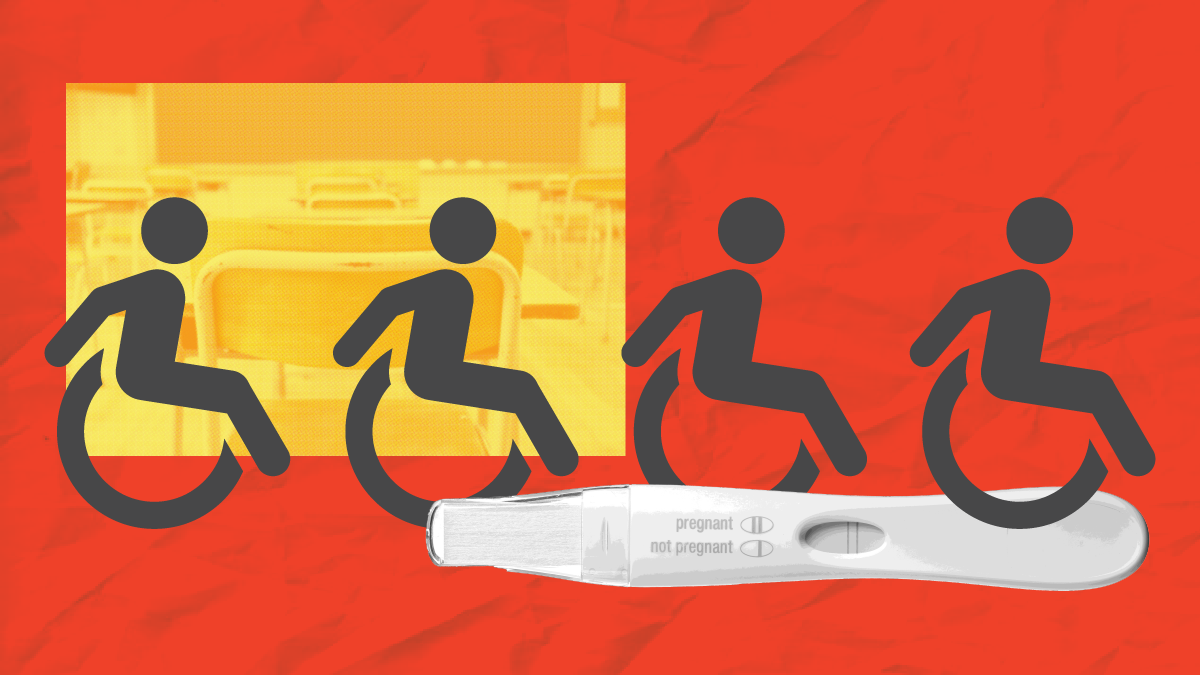Abortion rights, women of color, and LGBTQIA+ people are under attack. Pledge to join us in fighting for gender justice.
Three Reasons Why Betsy DeVos’s Proposed Title IX Rules Would Hurt Survivors


Update: The Title IX regulations referenced below were officially published on November 29, 2018.
Betsy DeVos is at it again. Three months after the New York Times leaked a draft of her proposed rules on sexual harassment and violence, the Department of Education officially published the proposed rules on November 29, 2018. Remarkably, DeVos’s proposed rules are even more dangerous than her already-terrible September 2017 guidance, which gave special rights to alleged harassers and rapists, rolled back protections for survivors, and created contradictory and confusing rules for schools.
You might be wondering, Is it even possible to further eviscerate Title IX? (Relatedly, is it ever necessary to own 10 yachts?) The answer to both questions is, unfortunately, yes.
DeVos’s proposed rules would actually encourage schools to ignore survivors when they ask for help—effectively, to aid and abet the Larry Nassars and Jerry Sanduskys of the world. If the proposed rules go into effect, they would encourage—and even require—schools to be complicit in sexual harassment and violence. Here’s how:
- Only the worst cases of sexual harassment would count as “sexual harassment.”
For almost 40 years, federal law has defined sexual harassment as any unwelcome conduct of a sexual nature. This means that when students (or employees) experience sexual harassment, they don’t have to suffer in silence or wait for it to become “bad enough” to report. Sexual harassment should never be allowed to continue unchecked.
But under DeVos’s new dystopian definition, sexual harassment wouldn’t count as “sexual harassment” unless: (i) an employee is requesting sexual favors in return for good grades or other educational benefits; (ii) the harassment qualifies as sexual assault; or (iii) the harassment is so severe and pervasive that it “denies” a student of their equal access to education—e.g., if the student has been forced to drop out of a class or out of school altogether. In fact, if a Title IX complaint doesn’t meet these narrow standards, schools would be forced (yes, forced) to dismiss the complaint. That means many students would be forced to endure repeated and escalating levels of abuse without being able to ask their schools for help. By the time their school would be legally required to intervene, it might be too late—the student might already be ineligible for an important AP course, disqualified from a dream college, or derailed from graduating altogether.
- Few school employees would be responsible for addressing sexual harassment.
If you tell your guidance counselor, track coach, or college RA that you’ve been sexually harassed or assaulted, you’d expect them to do something about it. But under DeVos’s proposed rules, the vast majority of school employees would no longer have to do anything—because they don’t have the “authority to institute corrective measures.”
Now, DeVos hasn’t clearly defined what “authority to institute corrective measures” means. So in order to ensure that they talk to the “right” person, K-12 students would have to go to their Title IX coordinator (if they even know who that is) or to a teacher (but only if their harasser is another student—not an employee!). And college students would only be able to turn to their Title IX coordinator if they want to be sure they would get help. Imagine being 8 years old and not being able to tell an adult you trust—like a playground supervisor or guidance counselor—about your assault. Imagine being 18 years old and being forced to talk about your rape with a complete stranger, instead of a TA you trust or your RA who lives down the hall.
DeVos’s proposed rules would absolve even the worst Title IX offenders of legal liability. Colleges like Michigan State and Penn State would have had no responsibility to stop Larry Nassar and Jerry Sandusky—just because their victims reported their experiences to school employees who didn’t have “authority to institute corrective measures.”
- Only a fraction of online and off-campus sexual harassment would be covered by Title IX.
In the year of our Lorde (and I mean Audre Lorde) 2018, no one actually believes that students live discrete, compartmentalized lives at school and outside of school. Students learn and interact with one another all the time—in the classroom, online, and off campus. But DeVos’s proposed rules would require (yes, require) schools to ignore all Title IX complaints of off-campus harassment or violence that happen outside of a school-sponsored program, even if the student is forced to see their harasser or rapist on campus every day.
That means if a middle school student is being sexually harassed by her classmates on Instagram or Snapchat, her school would be required to ignore her—even if she has to sit next to her harassers at school. If a college student is raped in off-campus student housing or at an off-campus fraternity not recognized by her school, her college wouldn’t need to investigate—even if she sees her rapist every day in their class, dining hall, or residential hallway. Not to mention, community colleges would be almost completely off the hook, since none of their students live on campus.
***
DeVos’s proposed rules are a complete abdication of the Department’s responsibility to keep students safe. But don’t just take it from me—take it from students at schools where her proposed rules are already in place. Take it from Francesca, a high school survivor and NWLC client, who was told that seeing her attempted rapist at school every day wasn’t bad enough or “hostile” enough to count as ‘sexual harassment.” Take it from DarbiAnne Goodwin, a high school survivor and NWLC client, who was raped off campus and then pushed into an inferior “alternative school” because her school refused to investigate off-campus sexual harassment. Take it from Sage Carson, a college survivor and current manager of Know Your IX, who dropped her Title IX complaint because her school used some of the same traumatizing investigation procedures that DeVos is proposing to make national.
Here’s how you can stop Betsy DeVos. And it just takes 10 minutes. I know you have 10 minutes.
DeVos’s proposed rules are horrible, but thankfully, they’re just a proposal. We still have the opportunity to stop Betsy DeVos through a rulemaking process called “notice and comment,” where anyone—and I mean anyone—can write directly to DeVos to tell her what you think about Title IX.
The notice and comment process is a 60-day period that starts on November 29, 2018 and ends on January 28, 2019. Here’s what you can do to fight back:
- Take 1 minute to sign this petition asking DeVos to extend the 60-day comment period so that students and educators have enough time to write comments outside of final exams and winter break.
- Take 4 minutes to learn how to write a comment to DeVos.
- Take 5 minutes (or as much time as you need) to write your comment! It can be as short or as detailed as you like. Just make sure it includes something unique from you.
That’s it! Thank you for joining the fight! And if you’re in the mood, feel free to tweet at her:
For once in your life, do your ***** job, Betsy DeVos.




